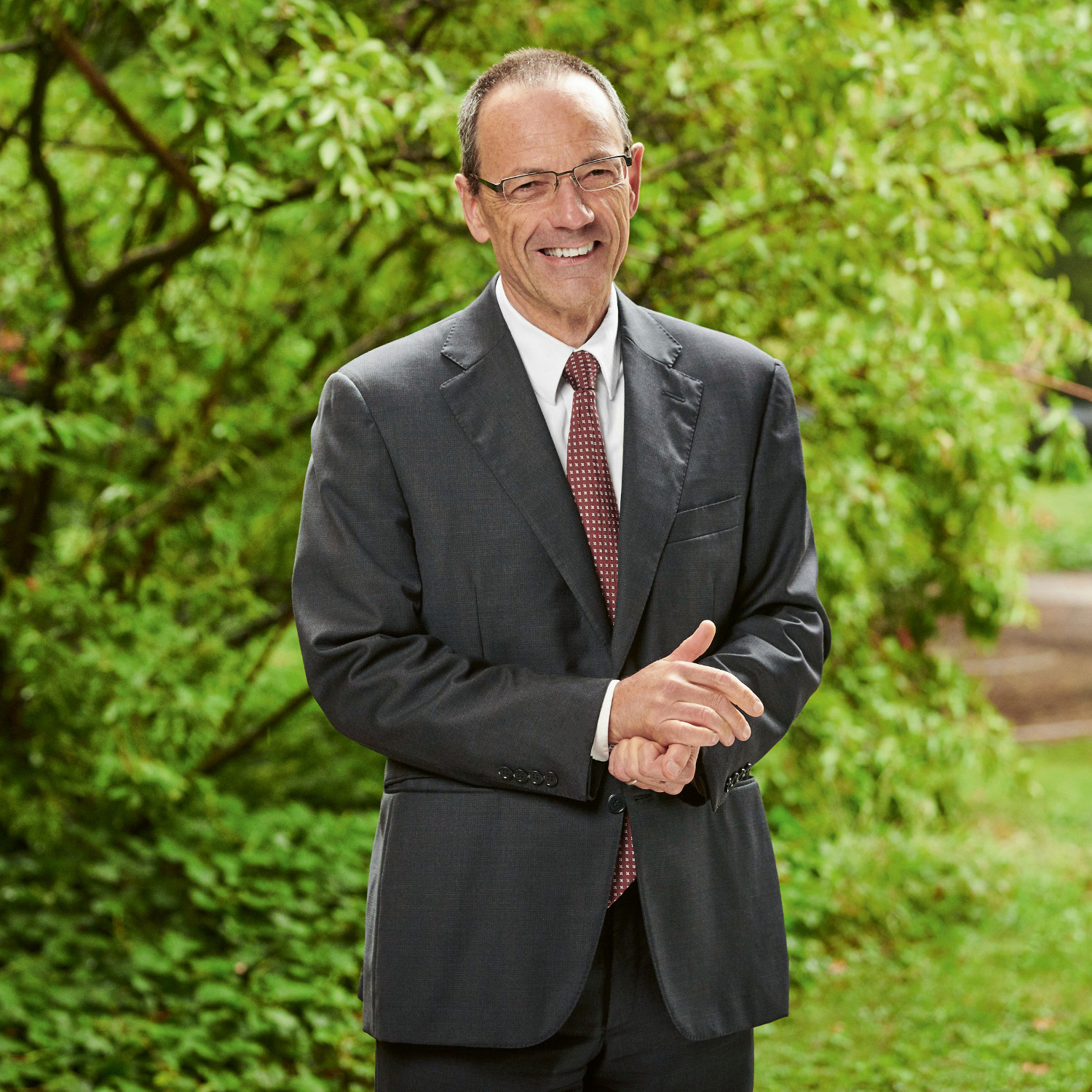What kind of leadership culture do we want?
11,400 people work at ETH Zurich, and 1,250 of them have a management role. However, we all have a role to play in shaping our management culture and, by extension, the success of our university.
“Becoming a manager was never really my goal,” says Laura Nyström, who moved to Switzerland from Finland nine years ago to take up an assistant professorship in the Department of Health Sciences and Technology. Today, she manages a research group with around 20 employees in her role as an assistant professor. In 2015, she received an ERC Starting Grant of 1.6 million Swiss francs and at the end of August she was presented with the ALEA Award for the most exemplary manager at ETH. What is the secret ofher success?
“The culture at ETH has really influenced me,” says the 41-year-old. “The people who work here are very motivated and they set themselves ambitious goals. This creates an environment of positive competition, which helps everyone to progress.” The communication between colleagues is also much more open, critical and discussion-based than at her Finnish university.
“In the beginning, I often took it personally when my staff members criticised me. But I learned to see criticism as an opportunity. Today, I know that the feedback and criticism from my doctoral students and employees is what has helped me most to develop as a manager.” Nyström conducts an extensive appraisal interview with every member of her group twice a year. Alongside assessing the employee’s development, a significant amount of time is allotted to discussing her conduct as a manager. She determines the frequency of the research-oriented discussions together with each team member.
Honest and constructive feedback
“Management is a task that involves us all,” says Ulrich Weidmann, Vice President for Human Resources and Infrastructure. “Most managers in academia chose an academic career because of their passion for their subject – not because they wanted to be someone’s boss. Furthermore, professors have a lot of duties to perform besides personnel management.” Feedback from employees is therefore very important for our management culture, but equally important is their willingness to see well-meaning criticism from their manager as a positive thing. The importance of honest and constructive feedback also extends beyond the academic sphere. “A positive attitude towards criticism and the capacity for self-reflection are crucial in order to develop as a manager, employee and human being,” says the Vice President.
At the same time, the manager should not be seen as a service provider – they are not responsible for the employee’s happiness or for the fulfilment of the employee’s performance targets. Nyström knows from her own experience how difficult it can be when a team member is unable to meet the required standards. “I try to find individual strategies with each employee – for example, defining sub-targets. But when I realised after nine months that a doctoral student wasn’t going to be able to finish her doctorate in four years and we had to part ways, it wasn’t easy for me,” recalls the professor. Talking to other colleagues in the department helped her to prepare for that difficult conversation.
Addressing conflict situations early on
In difficult situations, help is also available from the HR department – both for employees and for managers. “When you have 11,000 people, problems and conflicts are inevitable. The important thing is how you deal with them,” says Director of Human Resources Lukas Vonesch. “Managers need to identify conflict situations early on, find out the causes and come up with a process for solving the problem. Direct conversations are always the best way, but there are situations where even the most experienced managers need support from colleagues or from specialists in HR. Asking for help is nothing to be ashamed of – it is a sign of strong leadership.”
However, conflicts can also be an indication of misconduct. If it is not possible to have an open conversation with those involved, HR can help. All advice provided by the HR department is confidential and the next steps are always agreed on all sides. Ultimately though, all parties usually need to be included in the process in order to bring about an improvement. “Misconduct is rarely intentional – it is usually caused by misunderstandings, differing interests or excessive demands,” says Lukas Vonesch. The sooner you intervene, the easier it is to defuse a situation. “We all have a duty to be observant and take action if someone is not following ETH’s Code of Conduct,” says the Director of HR.
Alongside individual consultations, coaching and mediation, the HR department organises management courses which are recommended for all managers. It also offers training on a variety of management topics for individuals and entire departments. Last year saw the introduction of the “Leadership 4to7” seminar, which is particularly aimed at assistant professors and gives them an opportunity to share experiences and learn from each other. The last two seminars were on the subjects of doctoral supervision and recruitment.
Employees are partners
These two subjects play a key role in the success of our university. “I know from experience how rewarding a collaborative partnership between doctoral student and professor can be for both parties,” says ETH President Lino Guzzella. “ETH is a network of experts. Hierarchies are not the be-all and end-all for us – what matters is that our interactions are based on cooperation, respect and trust, that we discuss any issues that arise and that we give employees plenty of freedom, responsibility and room to grow.”
All of this means that, alongside subject expertise and leadership skills, personality is also an important factor to consider when appointing professors and filling management roles. “Potential managers have to fit into the group dynamic of the team and the culture at ETH, as these are crucial elements of our success,” says Guzzella. In recent decades, the management culture at ETH has become more open and cooperative, which has a positive impact on the motivation, commitment and performance of all staff members. However, maintaining the university’s high standards is a never-ending task and even a single violation of our culture of respect is one too many.
“Employees deserve unconditional respect from their managers; managers, on the other hand, have to work to earn the respect of their employees,” says Guzzella. For this to happen, managers have to help their employees to achieve jointly defined goals and develop at a personal level, and thus contribute to ETH’s success. Employees should be treated as partners. At the same time, managers need to maintain ETH’s very high quality standards and make important – and sometimes unpleasant – decisions. “Reconciling these two conflicting priorities is a huge challenge – that’s something that we all need to bear in mind,” says Weidmann.
Improvements require change
In most cases, employees are satisfied with the conduct of their managers: in the last employee survey two years ago, 88 percent of ETH members gave their managers a very positive or positive evaluation. “But there is always room for improvement,” says Vonesch. Last year, HR joined forces with the Office of Equal Opportunities (Equal) and other departments to launch a new Respect campaign and draft a binding Code of Conduct, which was sent to all ETH members in April. At the moment, various parties are working on a package of measures with the aim of improving aspects such as complaint processes, doctoral supervision and professor inductions.
In order to bring about any kind of improvement, however, people need to be willing to change. Nyström realised how important this is a few years ago when her research group grew significantly over a short period of time. “The atmosphere deteriorated and the amount of criticism increased,” recalls the professor. She developed solutions together with her employees, giving them more responsibility and delegating tasks that were previously under her remit. These measures proved to be a success: “I knew that my employees were happy with me and with their roles again from our regular meetings. But the ALEA Award still came as a surprise – I was delighted to receive it.”
Promoting the desired management culture
The ALEA Award is designed to emphasise the importance of good management conduct and promote a positive management culture. The scientific staff association AVETH launched the award in 2007. Between 40 and 50 nominations are submitted each year, mostly for professors. The judges, comprising representatives from HR, Staff Commission, Equal and the Academic Association of Scientific Staff at ETH Zurich (AVETH) as well as an ombudsperson, select the manager they deem to have the most exemplary conduct. “Laura treats all of her employees with the utmost respect and regards them as equals. She is always happy to hear our suggestions, questions and requests. She always responds positively to suggestions, and important decisions concerning the research group are often made jointly.”
This is how Nyström’s employees described her when they nominated her, and also: “She clearly values all of her team members. She addresses our individual needs, encourages our strengths and helps us when we are struggling. She sets an example with regard to combining work, family life and other passions and expects nothing from us that she doesn’t do herself – whether it relates to our working culture, taking holidays or enjoying activities outside of work. Her philosophy is very clear: happy group members = good research.”
The new ETH magazine "life" is out
This article is the cover story of the current issue of "life".
In the new edition, Rainer Borer, Head of Corporate Communications, explains how things stand with ETH Zurich's reputation and which focus will be placed on communication in the future. In addition, "life" shows how teaching is developed with modern instruments and Lukas Reichart reveals his learnings in his function as President of VSETH.




